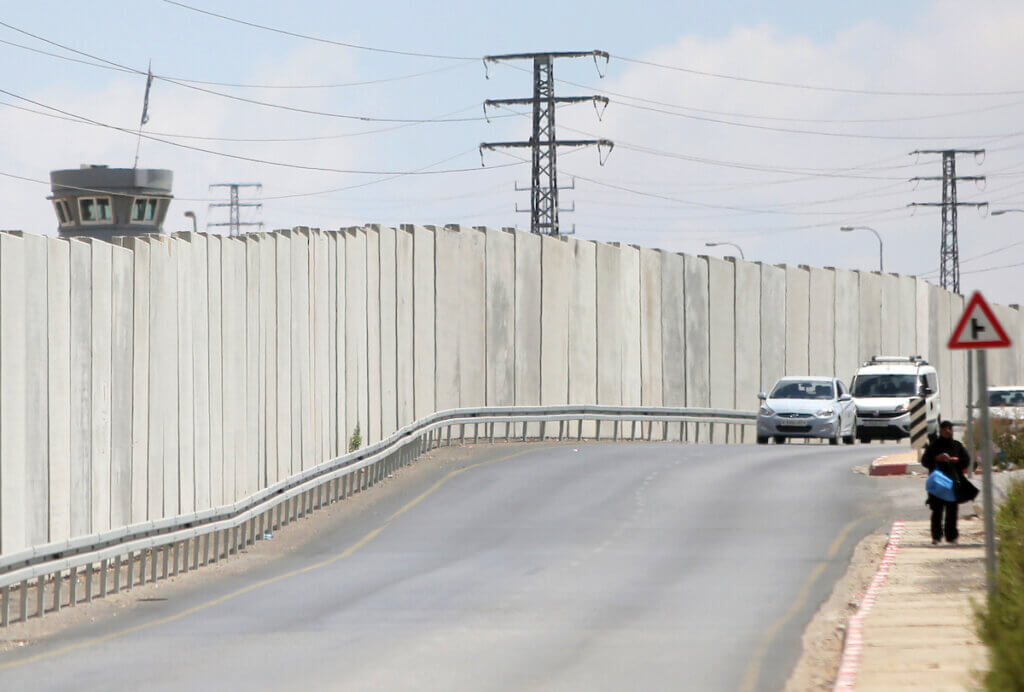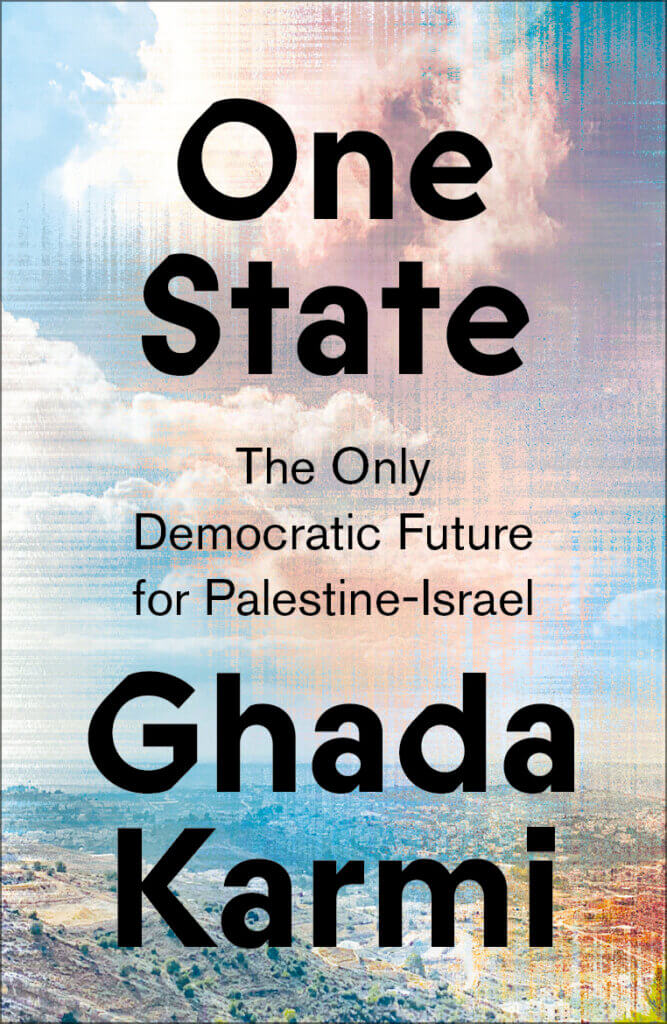
It is that time of year when the annual commemoration of Israel’s creation in my homeland, and the disaster it led to, comes around, yet again with no end to the conflict in sight. Israel’s land grabs, ethnic cleansing, and human rights abuses against Palestinians continue unabated, unpunished, and unaccountable.
Seventy-five years ago, Israel was established on the ruins of Palestine. In that process, my family was forced to flee our home in Jerusalem. Israel’s creation, officially declared on May 15, 1948, marked the start of our long exile, even as our eviction was being celebrated for installing another people in our place. In the following decades, we watched helplessly as the new state grew in strength and dominance to become a regional superpower. Today, Israel is a nuclear power with an army ranked the fifth largest in the world. It enjoys the unstinting support of Western countries, most especially the United States. The U.S. provides Israel with advanced weaponry, intelligence sharing, and political and diplomatic support. The West regards it as an integral part of the Western world. The European Union has accorded Israel a privileged status in trade and access to EU research programs, exactly as if it were a European state. Marking Israel’s anniversary this April, the EU Commission president, Ursula von der Leyen, falling over herself with praise for Israel, even enthused that Israel had “made the desert bloom.”
As to the victims of Israel’s creation, the Palestinians like me, who lost out, were not honored, commended, or given any status. The majority of Arab states (with the exception of Algeria) have regarded Palestinians variously as a burden or a source of political instability for their people. Although, in fairness, they gave the refugees a home and vital support, it was on the understanding their stay would be temporary while they awaited their return to the homeland.
That return never happened, and each year the Palestinian situation only gets worse. Not all the cheery solidarity hullabaloo of well-meaning people in the world can disguise this basic fact. The election in December 2022 of a hardline Israeli government composed of religious extremists and ultranationalist zealots has immeasurably worsened the Palestinian plight. The new government’s political program is based on the annexation of Palestinian land, apartheid, and ethnic cleansing – all underpinned by an assumption of Jewish supremacy. The effects of this ideology are plain to see in the increased persecution of Palestinians since the new government came in.
That should be no surprise. Israel has pursued an anti-Palestinian policy program since 1948, either brazenly or covertly. How else to describe the expulsion of most of Palestine’s population in 1948, repeated in 1967 and continuing ever since, the military occupation of the West Bank, Gaza, and East Jerusalem, the settlement building, the inhumane siege of Gaza, and the apartheid regime imposed on Palestinians? In a way, the current Netanyahu government should be congratulated on exposing this ugly reality, in contrast to the duplicitous presentation of Israel as a democracy on the Western model.
That exposure should have evoked revulsion amongst the international community and a firm rejection of Zionism. None of it happened. For Israel’s Western allies, it is business as usual with a state that regularly breaks international law, attacks its neighbors, oppresses the Palestinians whose land it occupies, and imposes an apartheid system on them. The West has sanctioned Russia fiercely for similar crimes, but Israel is embraced as a cherished part of the Western fold.
For Palestinians, it is a different story. Since 1948, as Israel gained in power and prestige, they have fought every inch of the way to preserve what remains of their presence on the land, their history, and collective memory against a formidable Israeli campaign to erase them. For all its sophistication and Western backing, Israel has never been able to solve the problem of eradicating the Palestinians in their midst and regretted leaving any of them behind in 1948. That ‘mistake’ had consequences that would eventually impose its own reality.
Today, the territory between the Jordan River and the Mediterranean Sea is one single entity under the administration of one sovereign Israeli government. The result is that Israel/Palestine in 2023 is one state, but an unequal one, with differential rights and classes of citizenship. Its population comprises 6.8 million Israeli Jews with full citizenship and rights, 1.8 million Palestinians with Israeli citizenship but restricted rights, and 4.7 million Palestinians with no citizenship and no rights. The last group is subjected to a system of well-documented Israeli apartheid.
Israel has gotten away with this injustice so far due to Western permissiveness towards Israeli crimes and the existence of the Palestinian Authority, which has absolved Israel of responsibility for the occupied Palestinians. As this arrangement begins to unravel, starting with the unprecedented, communal Palestinian uprisings of May 2021, which were aimed at the PA as well as Israel, and their continuation until now in hotspots like Jenin, Nablus, the villages around Ramallah, as well as Gaza, the inevitable outcome of all this draws near.
We in exile used to believe we would have a signal role in solving the Israeli-Palestinain conflict through our activism and strivings to influence powerful external actors. But we were wrong. The solution will come from inside.
We in exile used to believe we would have a signal role in solving the Israeli-Palestinain conflict through our activism and strivings to influence powerful external actors. But we were wrong. The solution will come from inside, on the ground, in the bloody face-to-face confrontations between Israel and the Palestinians. And the trajectory of their struggle will eventually drive the conversion of Israel’s current master-slave one-state version into one more equitable and more democratic.
This achievement will be lengthy, hard won, and ferociously resisted by Israel. That does not make it any less desirable or worth fighting for. In the opinion of this writer, there is no other way forward. Israel, as a foreign, Western-facing entity imposed on a region inimical to its ethos and culture, was created against the logic of history. That same logic will see its transformation into a more harmonious, and more natural part of its Middle Eastern environment.




Here’s a vivid and informative video report on the situation in Hebron. It’s the conflict in microcosm. I was struck by an Israeli resident’s claims that (1) the Israelis were minimally impacting Hebron, (2) the Palestinians didn’t exist, and (3) the Torah gave him this land, all expressed with great indignation.
Israelis vs Palestinians: How two clashing nations deal with each other in divided Hebron
https://rumble.com/v2mnc6s-israelis-vs-palestinians-how-two-clashing-nations-deal-with-each-other-in-d.html
“Israel has pursued an anti-Palestinian policy program since 1948,”
The Zionists pursed an anti-Palestinian policy program almost from their earliest years.
To be discussed and debated is how to bring about equality in one state.
It’s worth noting how the narrative has changed over three fourths of a century. It originally had to do with a struggle of Israelis, including many survivors of the recent European Holocaust and persecution in Arab countries, against those same Arabs who were always bellowing about how the wanted to throw them into the sea. Over time, and especially after 1967, the enemies of the Israelis were more and more specified as the Palestinians, with the surrounding Arab states, especially after 1973, posing less and less of a credible military threat to Israel. Now, instead the hundreds of millions of Arabs threatening to drive 2, 3 or 5 million Jews into the sea, we have 6 or 7 million of the latter seeming to want to drive an equal number of much less well armed Palestinians into the desert, or into unlivable Bantustan-type enclaves. It will be fascinating to see how we get from this state of affairs to “a more harmonious, and more natural” state of democratic bi-nationalism. Right now, it seems that it will take several generations, but let’s remember that that’s what people were saying about the prospects for freeing eastern Europe from Soviet control in the 1980s.
The article is well written but with one major flaw and a few questions that remain.
I’ll start with the questions.
Now that we have that out of the way. The major flaw of your article and your viewpoint in general is calling the sovereign state of Israel, “Palestine-Israel.”
If you do that then you would have to call Jordan, “Palestine-Jordan”. I wonder how long the king would champion your cause if you started doing that.
Deligitimizing sovereign states wont get you anywhere except in the most anti-democratic fringes.